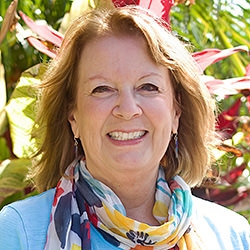
NVC Resources on Feelings
-

NVC Life Hacks 15
Scary Honesty
It's normal for us to keep something inside, avoiding sharing it with someone else as the risk may feel too high. Maybe they will reject me, or be offended and not speak to me again? It can be difficult to know when to share your truth and when to keep it inside. In this episode we layout some useful strategies that will help you speak your truth, while still keeping the connection.
-
Ask the Trainer: I feel overwhelmed thinking of writing to someone with cancer. What can I do?
-
Want things to change in your community, but feel frustrated or don’t know what to do? Miki’s intriguing overview of how to apply the principles of NVC to social change movements may have the exact blend of inspiration and ideas you’re seeking!
-
I love the insights, resources, and inspiration I get from this course. It gives you a glimpse into the support Miki offers around deepening the practice of nonviolence in thought, word, and action.
—Lore Baur, NVCA Course Coordinator, CNVC Certified Trainer.Miki is sharing what that means "Responding to the Call of our Time" for her and invites us to feel that call. This video illustrates how she is helping participants through teaching, coaching and mentoring so they can move forward with their challenges.
-
Ever have a hard time saying "no" to someone, or feel obligated to say yes? Here's an exercise that can help you notice where you are placing yourself as someone who "has to" say yes; the needs in the other person making the request; what you want to say "yes" to (regarding your needs and theirs) by saying "no"; what prevents you from saying "yes"; plus your request and how you might express it.
-
Is there someone you wish was more willing? Try guessing what obstacles they might be struggling with. And allow yourself to feel your grief. As you grapple with your own desire for someone to find their willingness, its essential to recognize that this is about you and your needs. You can also express your needs honestly, make requests for how to collaborate, and be responsive to what they want. Read on for more on this, plus four common ways someone’s willingness might be blocked.
-
Differentiation means you can access both autonomy and intimacy in relationships. When you're unafraid to lose yourself or be controlled, you can feel deeply connected and affected, while standing strong in yourself. Differentiation also means ability to tolerate disharmony and differences, self-soothe, offer compassion, and set boundaries. Here, we'll focus on setting boundaries with monitoring eye contact and physical interaction, and interrupt our "helping".
-
You value generosity and you often give easily from the heart. There are those times, however, when you get snagged by a sense of obligation. You feel tense and resentful. You don't want to continue with this attitude, but how can you reconnect with the desire to give from the heart? Let’s touch on three essential elements that support giving from the heart: choice, mourning, and acceptance.
-

Embracing Positivity
Transforming Lives through Joyful Choice and Conscious Action
Marshall Rosenberg used to talk about every situation with the same level of joy a child might feel. This may seem impossible at first! But when you focus on all the ways something is hard, you miss out on the full experience and remove your sense of choice. In this video, Mary shares several benefits of positivity and lots of examples along the way.
-
Shared story has been a way for groups to unite in opposition to a common enemy. But more divergent and virulent beliefs/stories swirl through the internet and social media, facilitating people to polarize against one another. So notice when you're caught in a polarizing story; try shifting focus to observing your mind; somatic presence; underlying commonality; consciousness as universal need, energy, and spaciousness; and the natural compassion and generosity that flow from this.









